Mental Illness and Spiritual Gifts: Exploring The Connection
Mental illness is a health condition affecting one’s thinking, emotions, and behavior, while spiritual gifts are talents or abilities believed to be divinely granted.
Although some people might experience spiritual growth or enlightenment during their journey with mental illness, they are separate concepts.
Mental illnesses are complex disorders that impact an individual’s psychological well-being and day-to-day functioning.
Spiritual gifts, on the other hand, are special abilities that can be utilized for personal growth or to enhance the lives of others. These gifts may involve heightened intuition, empathy, or other psychic abilities. People who possess spiritual gifts may find it easier to connect with the spiritual realm and gain insights that can guide them in their everyday lives. Some individuals may also use their spiritual gifts to provide healing or comfort to others, whether through energy work or spiritual counseling. It’s important for those with spiritual gifts to nurture and develop their abilities in order to use them to their fullest potential.
While mental illness and spiritual gifts are separate concepts, it’s possible for personal experiences to intertwine.
For instance, an individual with a mental health condition may become more in tune with their spiritual side as a way to cope or gain understanding of their situation.
However, it’s essential to recognize that having a mental illness does not automatically mean one possesses spiritual gifts, and vice versa. The two can exist independently of one another.
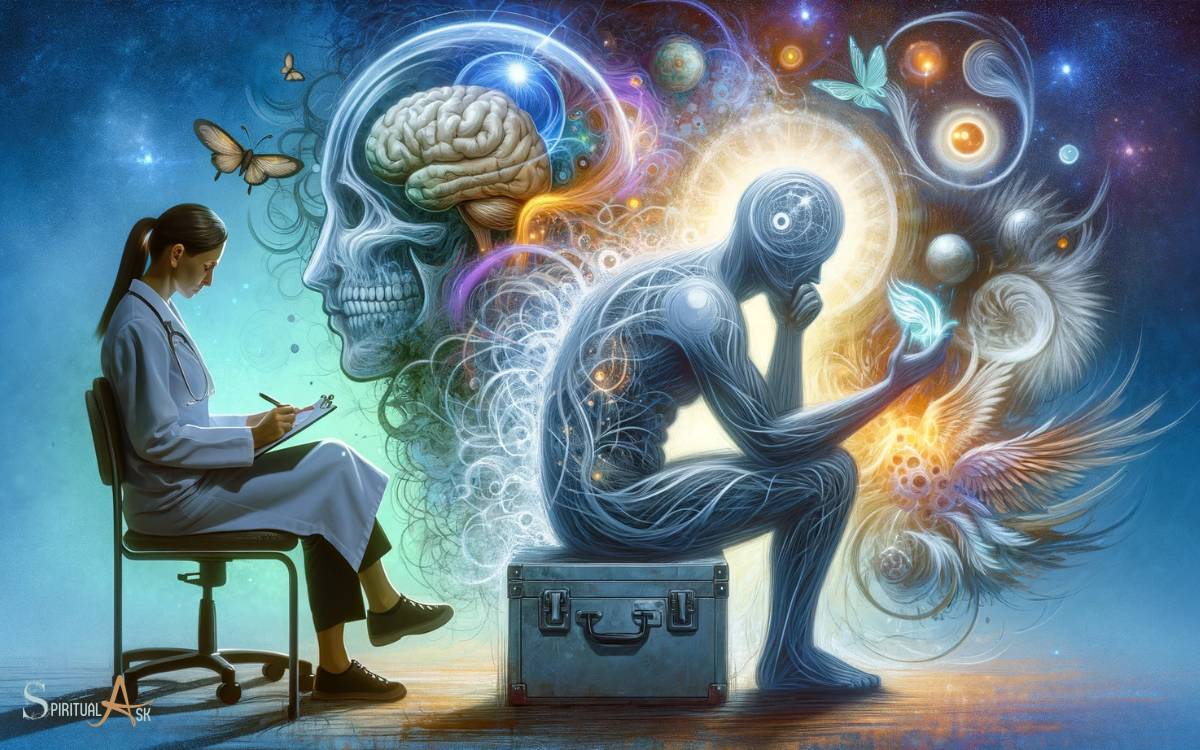
Key Takeaway
10 Mental Illness and Connection to Spiritual Gifts
| Mental Illness | Spiritual Gift | Description |
|---|---|---|
| Anxiety | Empathy | Ability to feel and understand others’ emotions deeply, often providing support and comfort to those experiencing emotional distress. |
| Depression | Heightened Sensitivity | The ability to perceive subtle energies or emotions within oneself and the environment, often leading to a deeper connection with others. |
| Bipolar Disorder | Creative Expression | Experiencing intense emotions can lead to a heightened sense of creativity, including the ability to express thoughts and feelings through various artistic mediums. |
| Schizophrenia | Enhanced Intuition | Possessing a heightened sense of intuition or psychic awareness, enabling the individual to perceive information beyond ordinary perception. |
| Obsessive-Compulsive Disorder (OCD) | Attention to Detail | The ability to focus on details and maintain a high level of organization, often resulting in success in areas requiring precision and accuracy. |
| Post-Traumatic Stress Disorder (PTSD) | Resilience | Developing inner strength and emotional resilience as a result of overcoming adversity, often leading to greater self-awareness and personal growth. |
| Borderline Personality Disorder | Emotional Intensity | The ability to experience emotions intensely, allowing for a profound connection with oneself and others, often resulting in strong empathy and compassion. |
| Dissociative Identity Disorder | Adaptability | The ability to adapt to different situations or environments, often demonstrating a high level of resourcefulness and flexibility. |
| Autism Spectrum Disorder | Unique Perspective | Possessing a distinct way of perceiving and interacting with the world, often leading to innovative ideas and problem-solving skills. |
| Attention Deficit Hyperactivity Disorder (ADHD) | High Energy Levels | The ability to maintain high levels of energy and enthusiasm, often resulting in success in fast-paced environments or activities requiring quick thinking. |
Defining Spiritual Gifts
Spiritual gifts are unique abilities granted to individuals, often believed to be divinely inspired, that empower them to serve and uplift their community in a way that transcends ordinary human capacities.
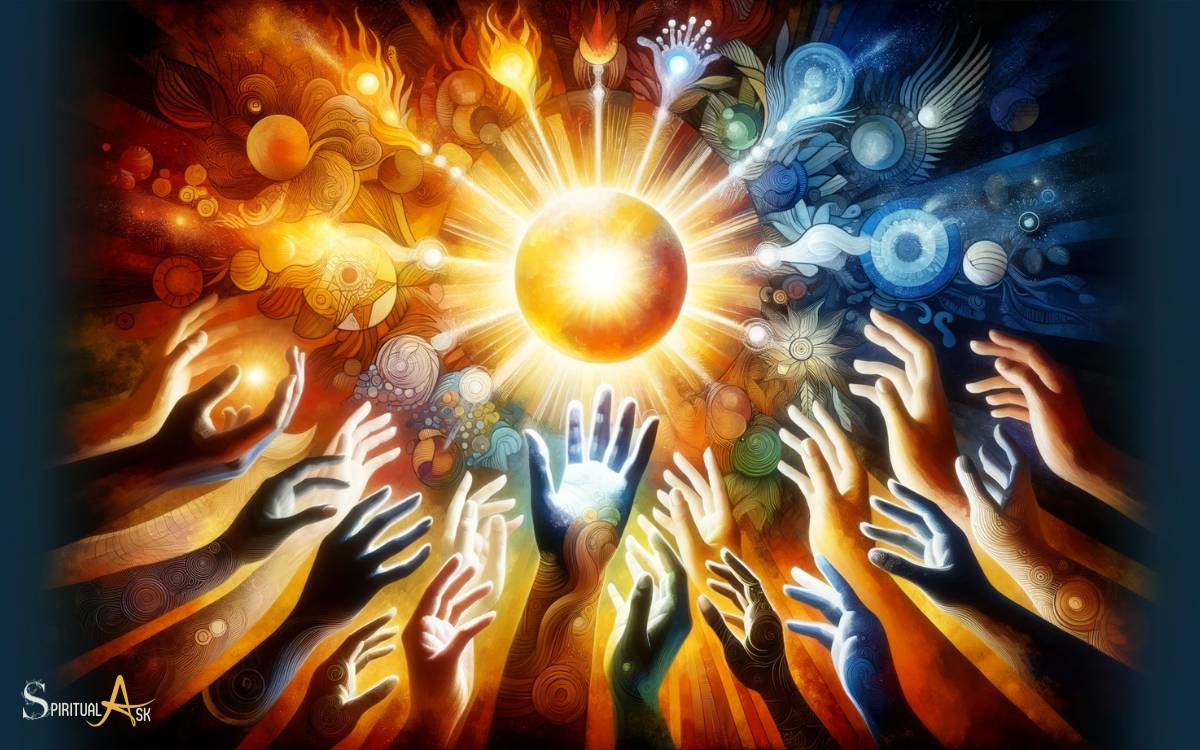
You may wonder if you possess such gifts or if they’re within the reach of everyone. Think of these gifts as special tools for healing, understanding, and connecting in ways that aren’t explained by everyday skills or talents.
They’re not just about religious practices; they’re about tapping into a deeper part of yourself that can influence and inspire others.
Whether you’re comforting a friend with uncanny empathy, intuiting solutions to complex problems, or inspiring hope in challenging times, you’re tapping into something extraordinary. These aren’t just random talents; they’re your spiritual gifts.
Historical Perspectives
Throughout history, many cultures have recognized the intertwining of mental phenomena and spiritual experiences, often viewing them as different facets of the same ineffable reality.
You’ll find that in ancient times, those with unusual mental experiences might have been seen as touched by the gods or possessing a rare spiritual insight.
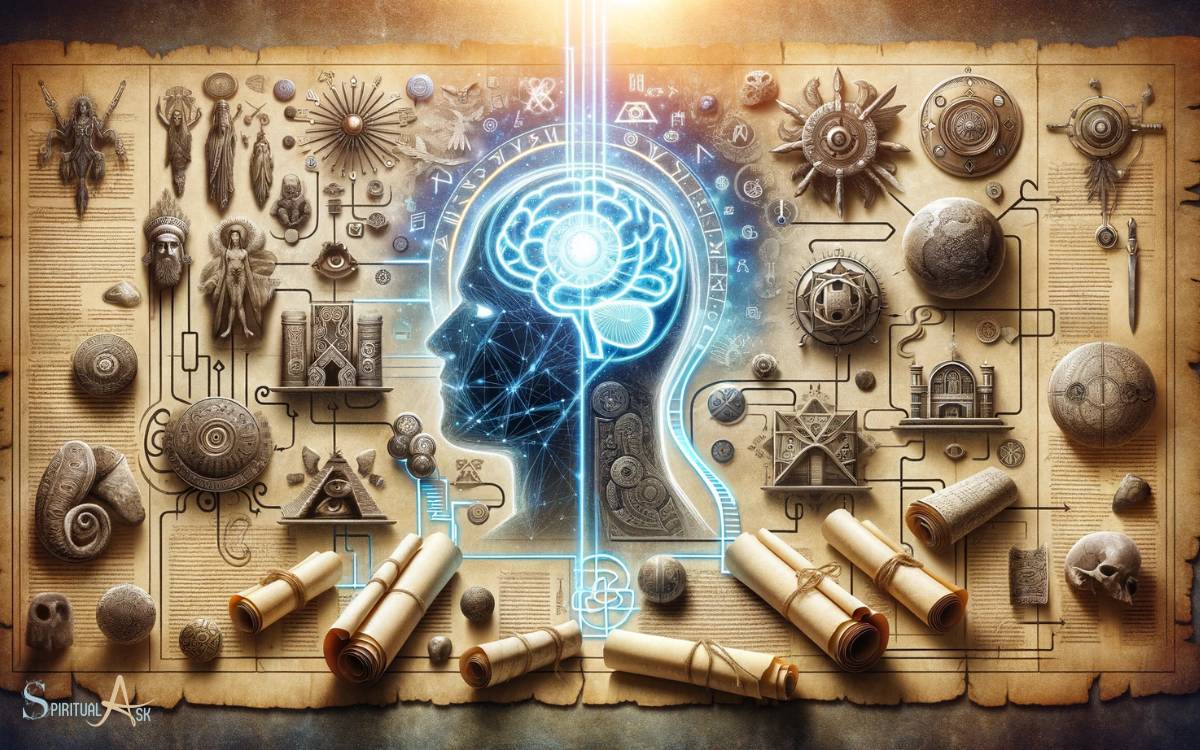
Shamans, seers, and oracles were revered for their abilities to connect with other realms, and their psychological peculiarities were often celebrated as divine gifts.
As you delve into the past, it’s clear that this perspective has shifted significantly over time. What was once perceived as spiritual aptitude might now be diagnosed as a mental disorder.
You’re exploring a complex relationship where the lines between spiritual enlightenment and mental illness have been drawn and redrawn across the ages.
Mental Health Stigmas
While history has often celebrated the connection between mental phenomena and spiritual experiences, today’s society frequently casts a shadow of stigma over mental illness, hindering many from seeking help.

You may notice how misconceptions and fears can isolate individuals, making them feel misunderstood or judged for conditions they didn’t choose. It’s crucial to realize that mental health issues aren’t a character flaw or a lack of spiritual insight.
They’re medical conditions, just like physical illnesses, and deserve the same compassion and attention. By recognizing this, you can contribute to breaking down barriers and promoting a supportive environment.
Remember, acknowledging and addressing mental health openly paves the way for healing and can even unlock a deeper understanding of the human experience, including its spiritual dimensions.
Spiritual Sensitivities
You may find that your unique spiritual sensitivities intersect with various aspects of mental health. It’s essential to recognize and define these sensitivities to navigate your experiences responsibly.
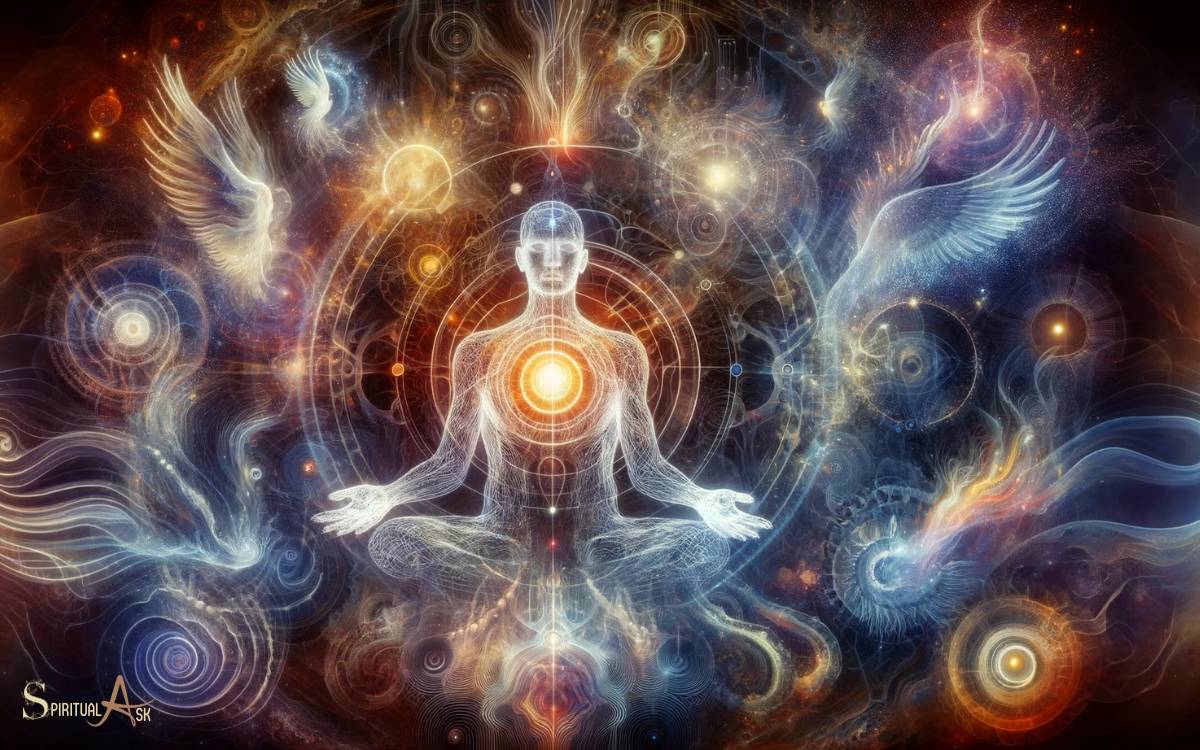
Let’s explore how you can manage and honor these aspects of your spiritual journey while maintaining your well-being.
Defining Spiritual Sensitivities
Spiritual sensitivities often manifest as a heightened awareness to the energies and emotions that are unseen but deeply felt within and around us. You may find yourself more attuned to the subtle aspects of your environment or the people you encounter.
These sensitivities can unfold in various ways:
Intuition
- Gut feelings about situations or people
- Premonitions of events before they occur
- Dreams that offer guidance or foresight
Empathy
- Feeling others’ emotions as if they were your own
- A deep understanding of people’s unspoken struggles
- Compassion that moves you to action
Synchronicity
- Coincidences that seem to carry meaning or direction
- Recurring symbols or numbers in your life
- Feeling guided by a force beyond the ordinary
Understanding these sensitivities can be both empowering and challenging as you navigate your spiritual path.
Mental Health Intersections

Recognizing your spiritual sensitivities is crucial, as they may intersect with mental health in ways that influence both your well-being and perception of the world.
You’re not alone in feeling overwhelmed at times by deep existential thoughts or profound emotional responses to spiritual practices. It’s vital to discern the line between a rich spiritual life and potential mental health challenges.
Here’s a table that may help you identify and understand these intersections:
| Spiritual Sensitivity | Mental Health Consideration |
|---|---|
| Intense empathy | Risk of emotional burnout |
| Vivid dreams | May reflect subconscious stress |
| Heightened intuition | Can lead to anxiety or paranoia |
Understanding these aspects of yourself can empower you to seek balance and maintain your mental and spiritual health.
Navigating Sensitivities Responsibly
Navigating your spiritual sensitivities with care is essential to avoid the pitfalls that can accompany these profound experiences.
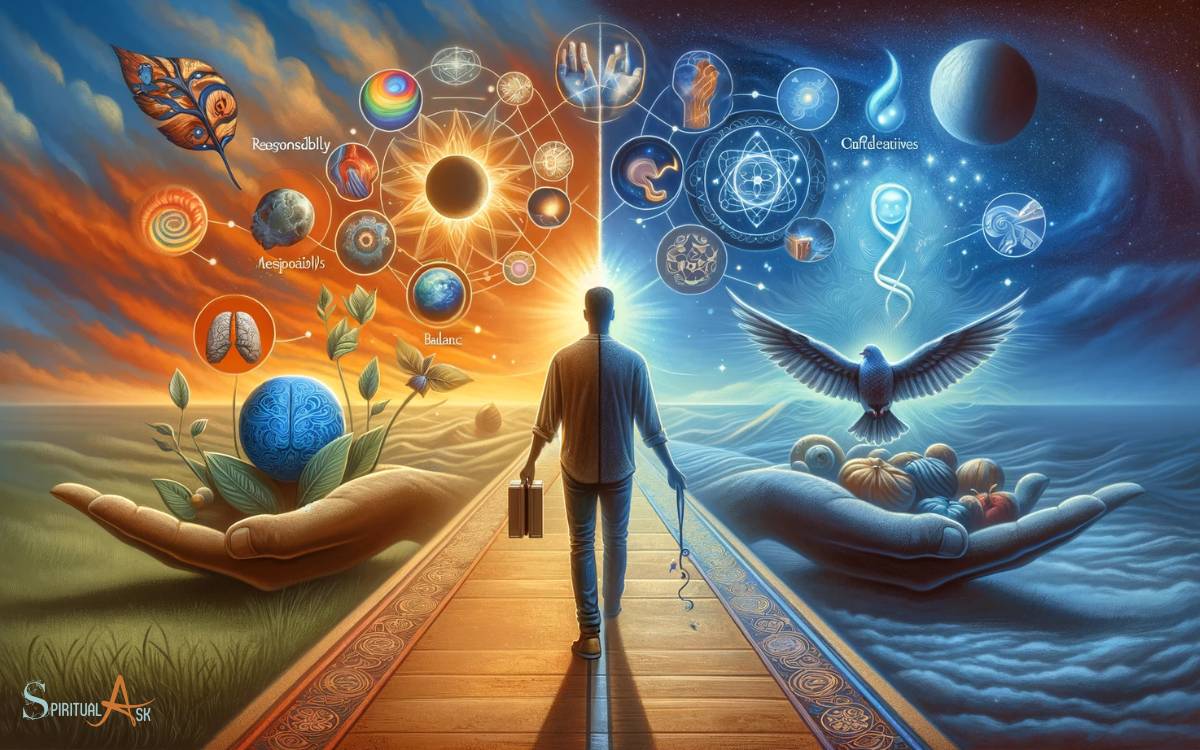
You’re not alone in this journey, and there are ways to manage your sensitivities responsibly:
Establish Boundaries
- Recognize your limits
- Learn to say no when overwhelmed
- Create a safe space for retreat
Seek Balance
- Ground yourself in daily routines
- Pursue activities that anchor you in the present
- Balance spiritual practices with practical life demands
Connect with Others
- Find a supportive community
- Share experiences and learn from others
- Seek guidance from trusted mentors
Personal Accounts
You’ve heard the theories and seen the research, but what does it really feel like to walk the line between mental health struggles and spiritual awakenings?
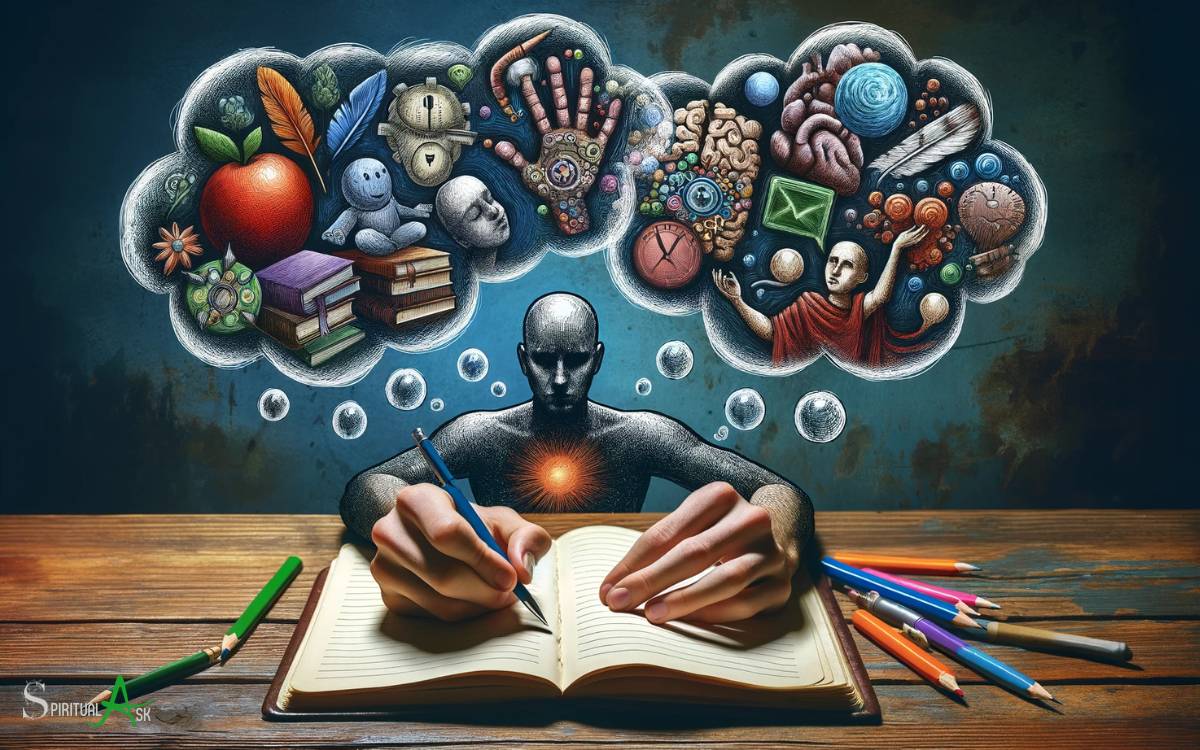
People just like you have experienced this intersection, grappling with challenges while recognizing potentially unique spiritual abilities. Let’s listen to their stories and understand how they’ve navigated these complex waters.
Navigating Mental Health Challenges
How do you distinguish between the trials of mental illness and the awakening of spiritual gifts when both journeys can profoundly transform your inner landscape?
It’s a delicate balance, one that requires you to:
Listen to your intuition
- Trust the feelings that guide you toward healing
- Recognize when something feels off or out of alignment with your well-being
Seek professional guidance
- Engage with therapists or spiritual counselors
- Explore different modalities to find what resonates with you
Create a support network
- Lean on friends and family who offer understanding and compassion
- Join groups where you can share experiences and learn from others
Navigating this path, you’ll learn to embrace your experiences as stepping stones to a more enlightened self.
Embracing Spiritual Unique Abilities
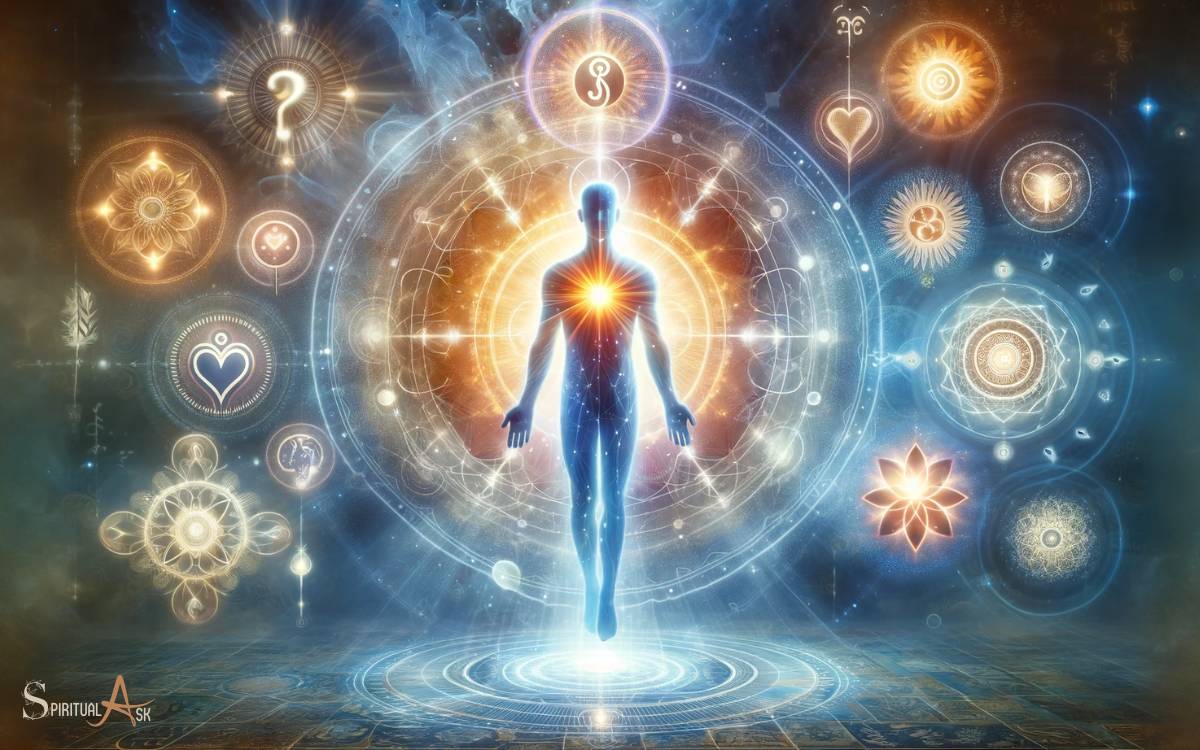
As you become more attuned to your inner self, embracing your spiritual unique abilities can lead to profound personal growth and self-discovery.
It’s a journey that’s deeply personal and incredibly rewarding. Recognizing these gifts often requires introspection and a willingness to step outside of conventional understanding.
Here’s a table to guide you through some common spiritual abilities and how they might manifest in your life:
| Ability | Description | Personal Impact |
|---|---|---|
| Intuition | Inner knowing beyond logic | Enhances decision-making |
| Empathy | Deeply feeling others’ emotions | Fosters deep connections |
| Visionary | Seeing beyond the present | Inspires creative solutions |
| Healing | Energetic or emotional healing | Promotes well-being |
| Channeling | Communicating with higher energies | Provides guidance |
Clinical Observations
Many clinicians have reported a perplexing overlap between symptoms of mental illness and experiences deemed spiritual gifts.

You’ve likely heard tales of individuals with bipolar disorder experiencing profound spiritual revelations during manic episodes, or those with schizophrenia reporting visions that hold significant personal meaning.
Here’s a snapshot:
Manic episodes often include:
- Heightened perception of connections
- Intense feelings of enlightenment
- Schizophrenia
Common experiences involve:
- Auditory and visual hallucinations
- Interpreted as messages or signs
- Borderline Personality Disorder (BPD)
Symptoms can mirror spiritual awakenings:
- Deep emotional shifts
- Sensations of merging with the divine
Understanding these intersections isn’t straightforward, but it’s crucial for providing compassionate care. You’re encouraged to approach these clinical observations with an open mind and a willingness to explore the nuances of mental health.
Coping Mechanisms
In navigating the complex interplay between mental illness and spiritual experiences, it’s essential to identify coping mechanisms that support both psychological well-being and personal growth.

You may find solace in meditation, which can ground you and connect you to a deeper sense of self. Engaging in regular physical activity isn’t just good for your body; it can also clear your mind and help manage symptoms.
Don’t overlook the power of a strong support network; talking with friends, family, or peers can provide comfort and insight.
And remember, professional guidance is invaluable. Therapists who respect your spiritual views can help integrate your experiences into a holistic treatment plan. It’s about finding balance and tools that resonate with you on your journey.
Embracing Duality
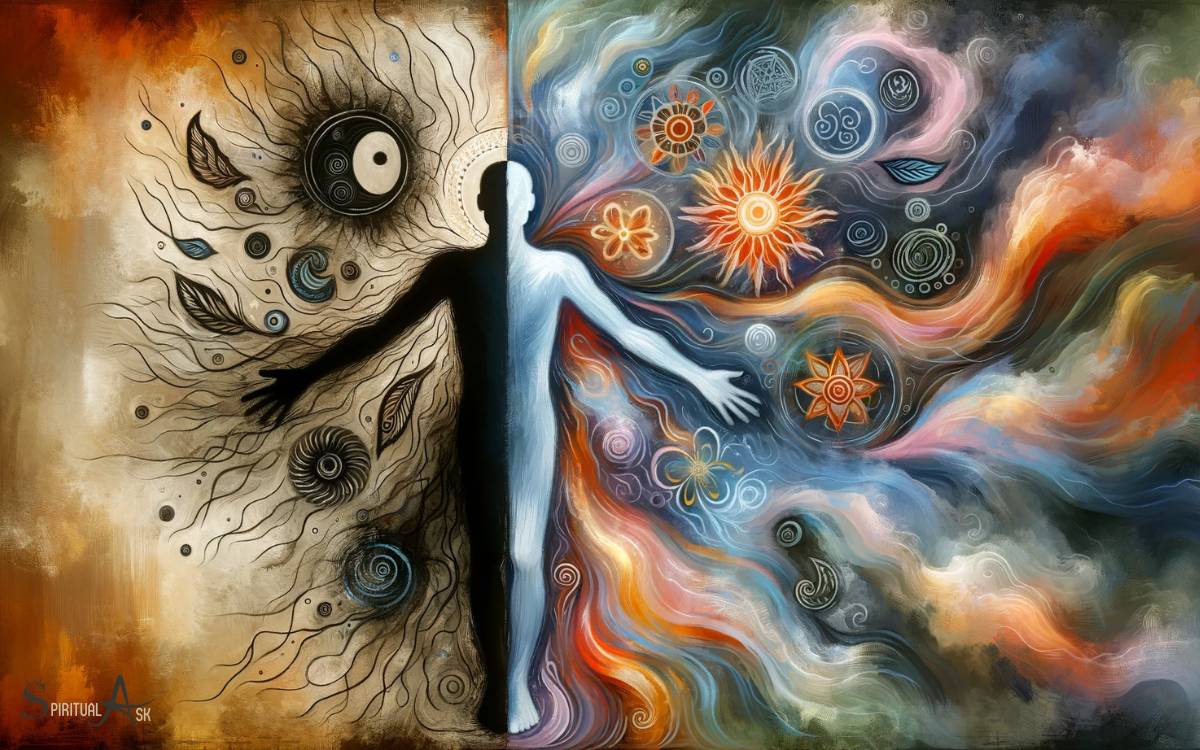
Understanding the concept of duality is crucial when distinguishing between the symptoms of mental illness and the nuances of spiritual gifts.
As you delve deeper, you’ll see that duality allows for a balance, acknowledging that:
- Mental illness and spiritual experiences
- Can sometimes share similar manifestations
- Intense emotions, visions, or a sense of connection beyond oneself
- Require different approaches for support and understanding
- Professional help vs. spiritual guidance
- Offer unique insights into your personal journey
- Challenges that foster growth and self-discovery
Embracing this duality means you’re not dismissing one for the sake of the other. Instead, you’re recognizing that both can coexist and provide a fuller picture of your experiences. It’s about finding harmony within the complexities of your mind and spirit.
How Can Spiritual Gifts Aid in Mental Illness?
Spiritual gifts can play a supportive role in managing mental illness, offering solace, understanding, and community connection.
These gifts, when utilized within a framework of compassion and understanding, can aid in healing and coping strategies. As we pursue love and gifts,
It’s important to see how spiritual gifts can impact mental health positively:
- Counseling and Wisdom: Provides insights and guidance, helping individuals navigate their struggles with a deeper sense of clarity and hope.
- Healing: While not a replacement for professional medical treatment, it can complement therapy by fostering a sense of peace and well-being.
- Encouragement: Uplifts those feeling isolated or despondent, reminding them of their worth and the support of their community.
- Faith: Strengthens individuals’ spiritual foundation, offering a resilient anchor during times of turmoil.
In the journey to pursue love and gifts, it’s crucial to approach mental illness with empathy, leveraging spiritual gifts to support and uplift, rather than to stigmatize or oversimplify complex issues.
These gifts, when combined with professional care, can offer holistic support to those facing mental health challenges.
Conclusion
You’ve journeyed through the misty realms where the mind’s challenges meet spiritual awakenings. Recognize that your unique perceptions are a tapestry of light and shadow. Embrace this intricate dance, for it’s a part of your rich inner landscape.
As you navigate these waters, let your experiences be your compass, guiding you to a harbor of understanding. Here, in the delicate balance of your being, lies the potential for profound growth and serenity.
FAQ About Mental Illness and Spiritual Gifts
What is the connection between mental illness and spiritual gifts?
Mental illness and spiritual gifts can be connected in that some people with mental illness may experience heightened spiritual sensitivity and perception. This can manifest as spiritual gifts such as clairvoyance, telepathy, prophecy, and increased intuition. However, it is important to remember that not everyone with a mental illness will experience spiritual gifts, and it is also important to seek professional help for mental health issues.
How can I tell if a mental illness is the cause of my spiritual gifts?
It can be difficult to determine if mental illness is the cause of spiritual gifts as many of the associated traits are subjective and can overlap. If you are unsure, it is important to speak with a qualified mental health professional about your specific symptoms and experiences. This can help you to determine if a mental illness is influencing your spiritual gifts, and to develop a plan for managing your symptoms.
Are there any risks associated with pursuing spiritual gifts related to mental illness?
Yes, there are risks associated with pursuing spiritual gifts related to mental illness. It can be difficult to control the intensity and frequency of symptoms, and the desire to engage in the process may be driven by a need to escape reality and could be detrimental to one’s mental health. Additionally, it is important to be aware of any associations between spiritual gifts and religious practices, which could potentially interfere with mental health treatment and resources.






